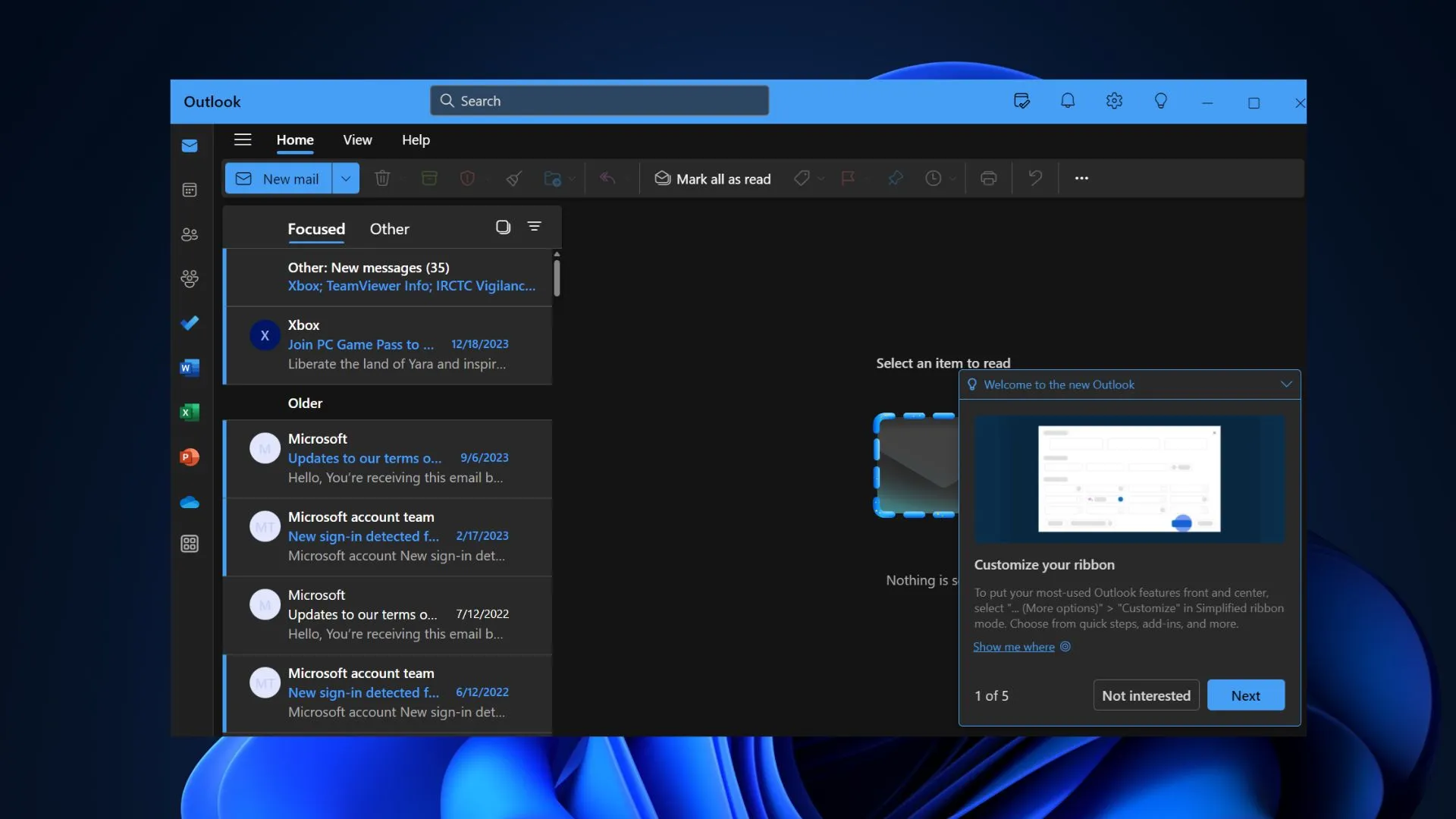Microsoft Shares Reasons Why Windows 11’s Outlook is Superior to Mail & Calendar
In 2023, Microsoft demonstrated increasing urgency regarding its legacy Mail & Calendar application, culminating in the launch of a new Outlook app, essentially a web interface. The company revealed that support for the existing Mail & Calendar app will end on December 31, 2024, compelling users to transition to the new version.
The new Outlook is presented as an advanced tool, boasting AI-driven features designed to streamline the email composition process with just a few prompts—although for regular email users, this may seem like an exaggerated necessity. The capability to receive reminders for critical discussions does not seem revolutionary or indispensable.
Among other highlighted features is the convenience of managing all emails from a single platform. Unfortunately, many other promoted features appear to be irrelevant buzzwords focused on Microsoft 365, with some nods to the app’s security enhancements.
A few months ago, there was a useful comparison chart contrasting Outlook web, Outlook desktop, and the Mail & Calendar app, but it’s currently hard to locate. What’s available now is only a new comparison table featuring Outlook web and the Outlook app.
What Frustrates Users About the New Outlook App?
The rollout of the new Outlook app was abrupt, with Microsoft utilizing gentle nudges, advertising, and mandatory transitions, leaving no room for users who wished to continue using Mail & Calendar. The company seemed intent on promoting the new app without considering existing users’ preferences.
While there are some aspects of the new user interface and features we appreciate, the transformation into a web-based application can feel cumbersome.

Another significant concern is the missing features that Microsoft promises to gradually introduce. However, the intrusive advertisements in the new Outlook web app pose the greatest frustration for users.
Previously, the UWP Mail and Calendar app was ad-free, but Microsoft appears poised to change this with the new Outlook. Reports suggest that other apps, such as the weather tool, are also becoming more ad-heavy, and Outlook is following suit.
Microsoft seems determined to increase revenue through advertising rather than relying on OS licenses alone, creating a burden for users with in-app ads. With no alternative available, users are required to adapt to the new app and transition their data before the support deadline.
Beginning January 1, 2024, the Mail & Calendar app will only serve as a legacy tool for opening old emails, with no capability to send or receive new messages.
Leave a Reply